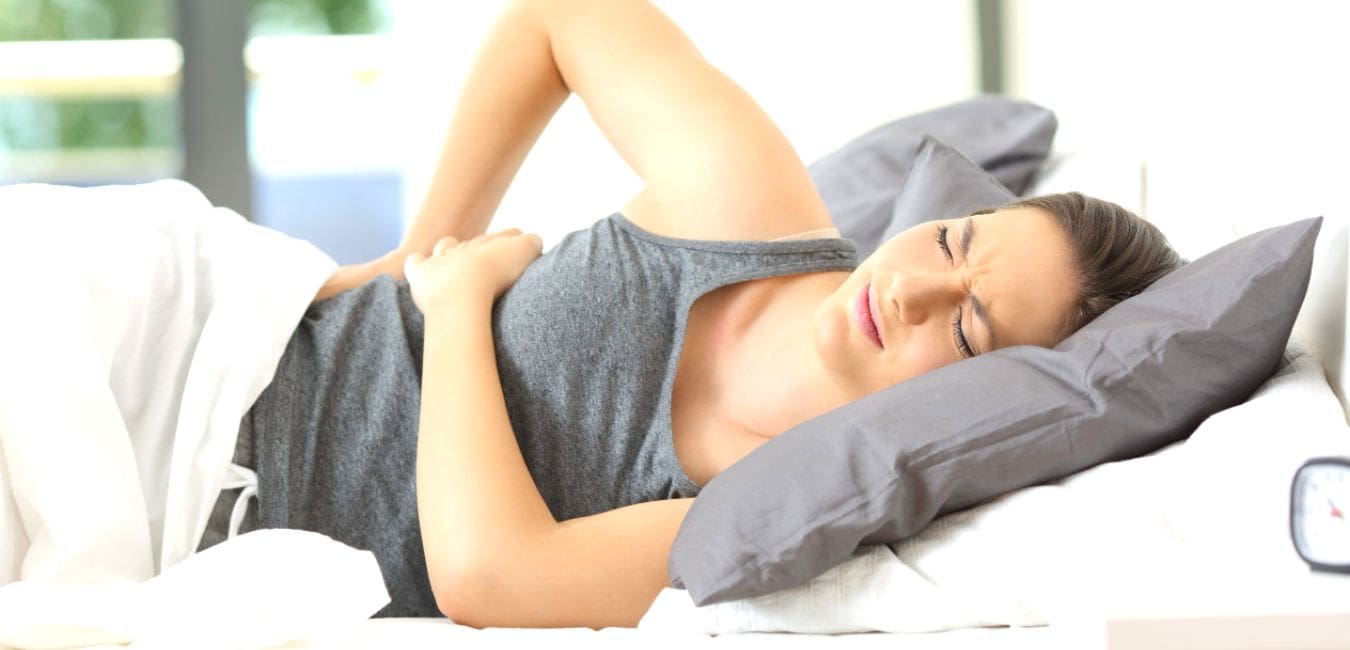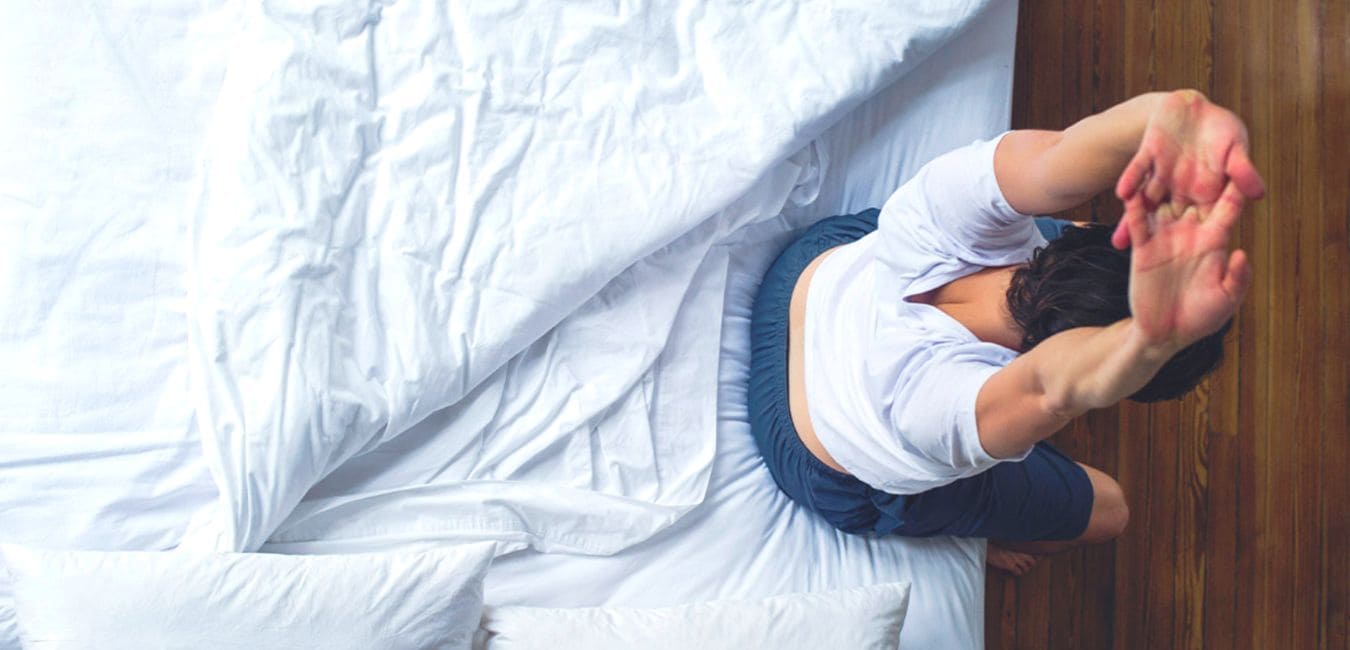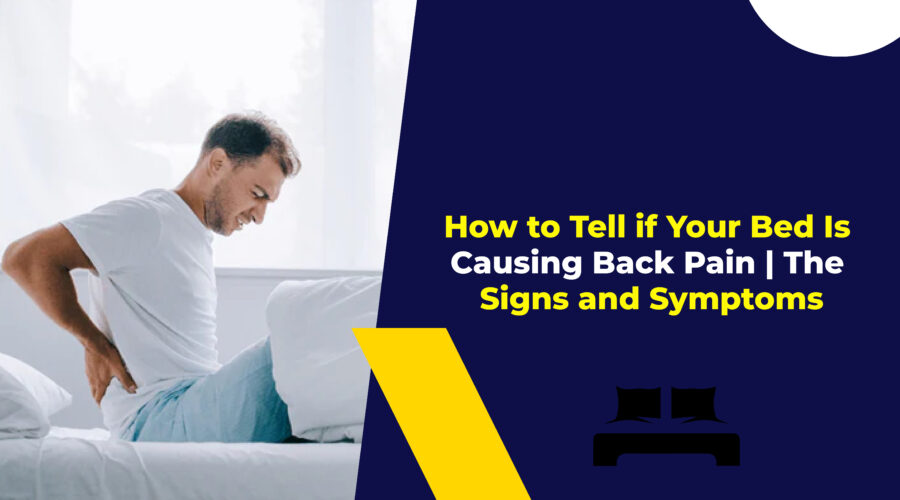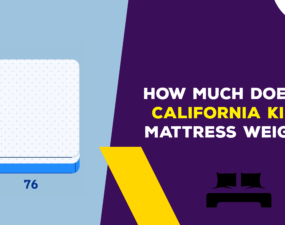We all know that a good night’s sleep is crucial for our health and well-being, but did you know that your bed might be the cause of your back pain? If you’re experiencing back pain, it’s important to assess your sleeping environment to see if your bed is contributing. In this blog post, we’ll tell you how to determine whether or not your bed is causing back pain and offer some tips for finding a more supportive sleep surface. Let’s get started!
Will a New Bed Help My Back?
A new bed might help your back if you have been experiencing pain while sleeping. A good mattress is key to getting a good night’s sleep and can help to reduce back pain. Tempur-Pedic mattresses are designed to contour your body and relieve pressure points, making them a popular choice for people with back pain.
You can also try an adjustable bed, which allows you to adjust the head and foot of the bed to find a comfortable position. If you’re still experiencing pain, it’s time to see a doctor. They can help determine the cause of your pain and recommend the best course of treatment.
How to Tell if Your Bed Is Causing Back Pain?
So do mattresses cause back pain?
There are a few signs and symptoms that may point to your bed as the source of your back pain. If you wake up with pain in your back or neck, it’s a good indicator that your bed isn’t providing the support you need. Another sign is if you find yourself tossing and turning all night long, unable to get comfortable.

10 reasons If your bed is the cause of your back pain
There are many reasons why your bed might be causing back pain. Here are 10 of the most common ones:
- Your mattress is too soft or too firm. – A mattress that’s too soft will cause your spine to sag, while a mattress that’s too firm will create extra pressure on your spine.
- Your pillow is too high or too low. – If your pillow is too high, it will put unnecessary strain on your neck, while if your pillow is too low, it will create tension in your shoulders and upper back.
- You sleep on your stomach or on your side incorrectly. – Sleeping on your stomach can cause undue stress on the spine, as can sleeping on one side incorrectly without using a pillow to support the neck.
- You don’t have enough support for your back. – A lack of support can cause the spine to round, which puts pressure on the discs and nerves.
- You’ve been sitting or standing for too long during the day. – This can cause muscle tension and lead to pain when you lie down at night.
- You have an underlying medical condition. – Conditions like arthritis, scoliosis, and spondylolisthesis can all cause back pain.
- You’re carrying too much weight. – Extra weight puts strain on the spine and can lead to pain.
- You’re pregnant. – The extra weight and changes in your center of gravity can cause back pain during pregnancy.
- You’re menopausal. – The hormonal changes that occur during menopause can lead to back pain.
- You’re dealing with stress. – Stress can cause muscle tension, which can lead to pain.
Solutions to Overcome the Back Pain
- If you’re experiencing back pain, it’s important to assess your sleeping environment to see if your bed is contributing.
- If you suspect that your bed is to blame for your back pain, there are a few things you can do to ease the discomfort.
- First, try sleeping on your back with a pillow under your knees. This will help take some of the pressure off your lower back.
- If that doesn’t work, try elevating your head with an extra pillow.
- If you’re still experiencing pain, it’s time to see a doctor. They can help determine the cause of your pain and recommend the best course of treatment.
- In the meantime, consider investing in a new mattress. It may be just what you need to get a good night’s sleep and wake up pain-free!
What Else Can You Do For Back Pain?
There are a number of things you can do to help alleviate and manage back pain. One of the most important things is to maintain good posture and alignment. This means keeping your shoulders down and back, your chest up, and your pelvis in a neutral position. This will help to take some of the strain off of your lower back.
It’s also important to strengthen the muscles in your core and lower back. This will help to support your spine and protect it from further injury. There are a variety of exercises you can do to achieve this, including Pilates, yoga, and strength training exercises such as squats and lunges.

In addition, grasp something like a tennis ball between each hand behind your back and squeeze it. This simple exercise can help to alleviate tension in your upper back and shoulders. Finally, be sure to get plenty of rest and give your body time to heal.
How the Right Mattress Can Cure Your Back Pain?
There is a lot of conflicting information out there about what is the best mattress for people with back pain. Some people say you need a firm mattress, others say you need a soft one. The truth is, it depends on your individual body type and sleep habits.
If you are overweight, have bad posture, or sleep on your stomach, then you will probably need a firmer mattress to support your spine and keep your spine in alignment while you sleep. If you are thin or have good posture, then a softer mattress may be more comfortable for you.
It’s also important to choose the right type of mattress. If you suffer from back pain, I would recommend a memory foam mattress. Memory foam contours your body and provides support where you need it most. It’s also a good idea to look for a mattress that has a removable and washable cover. This will help to keep your mattress clean and free of dust mites, which can trigger allergies and make back pain worse.
How to Pick a Good Mattress for Your Back?
Determine your sleep habits. Do you sleep on your back, stomach, or side? Do you toss and turn all night long? Your answers to these questions will help you determine what type of mattress is best for you.
If you sleep on your back, a firm mattress is usually best. This will help to keep your spine in alignment and prevent pain in your lower back. If you sleep on your stomach, a softer mattress may be more comfortable for you.
If you toss and turn all night long, it’s important to find a mattress that won’t cause you to feel uncomfortable. A memory foam mattress is a good option because it contours your body and provides support where you need it most.

If you have bad posture, it’s important to find a mattress that will help improve your alignment. A memory foam mattress is a good option because it contours your body and provides support where you need it most.
Finally, if you are overweight, it’s important to find a mattress that will support your body and spine. A memory foam mattress is a good option because it contours your body and provides support where you need it most.
When shopping for a mattress, be sure to lie down on it in the store to see how it feels. And don’t forget to ask about return policies in case the mattress isn’t right for you.
How to Tell if Your Bed Is Causing Back Pain – FAQs
Conclusion
If you’re experiencing back pain, it might be time to invest in a new bed. The wrong type of mattress can cause or exacerbate back pain, so it’s important to find one that will support your spine and keep your neck and spine aligned. We hope this article has helped you determine whether your current bed is causing your back pain and give you some ideas about what to look for in a new one. Thanks for reading!




